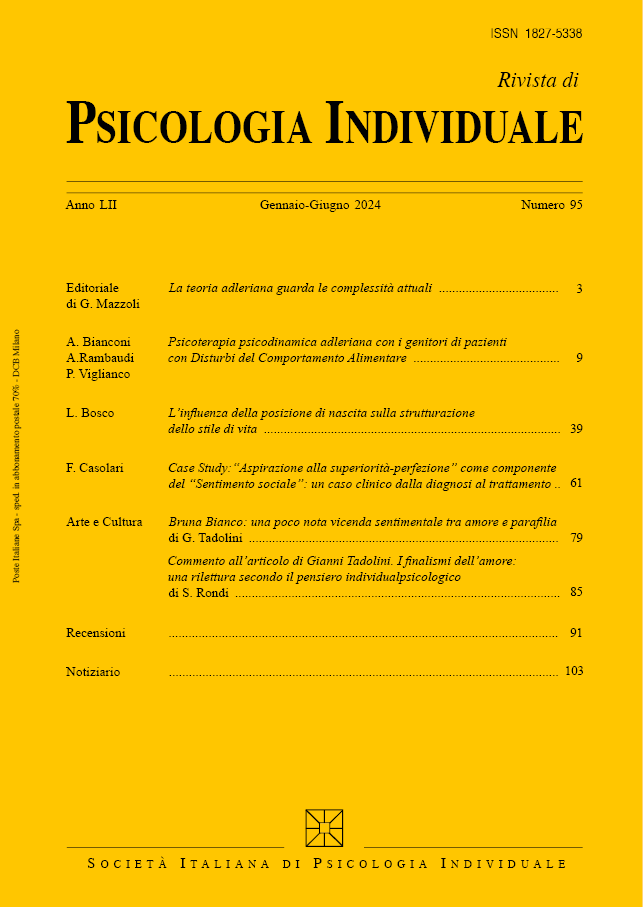Play in the elderly
Keywords:
game, elderly people, deterioration, aggression, psychosensory stimulation, inferiority, encouragement, cooperation, social feelings, projective testAbstract
Examining a psycho-sensory stimulation project aimed at a population of institutionalized elderly people, we can see the success of psychomotor play practices in promoting the formation of a new balance between the individual and their environment. Aging, defined in its neurophysiological components linked to the decline and alteration of cognitive and behavioral functions, is interpreted in Adlerian terms as a progressive reduction in vital tasks. Assuming that an active life, in its motor, mental, and social components, represents a protective factor in this stage of life, the proposal of psychomotor exercises with a view to non-competitive socialization seems to positively modify the perceived condition of inferiority of the elderly people involved, through a process of encouragement where play represented an opportunity to express aggression in a constructive way. At the end of the project, the assessment of the level of aggressive behavior through a projective test (M-Test) confirmed an improvement in the level of social feeling in the elderly people involved






